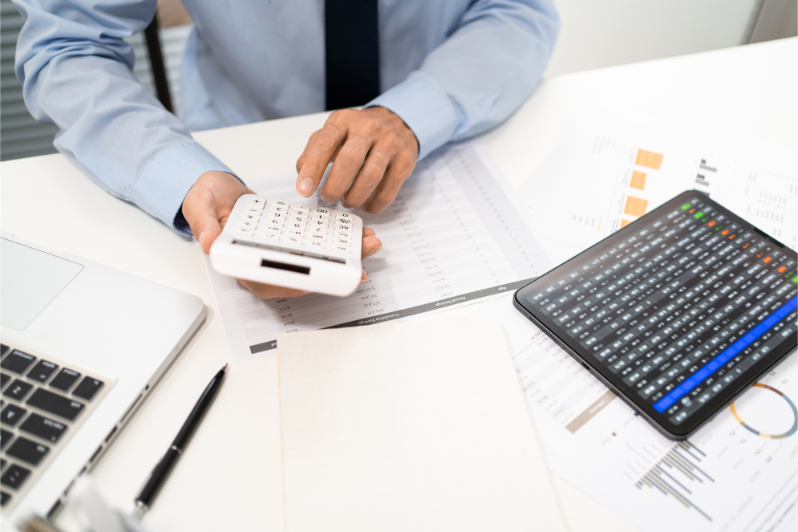Excise tax UAE is an indirect tax imposed on specific goods that are harmful to human health or the environment. It was introduced under Federal Decree-Law No. 7 of 2017 on Excise Tax and is monitored by the Federal Tax Authority (FTA).
The UAE excise tax(specific levy) targets products such as tobacco, energy drinks, carbonated drinks, and electronic smoking devices. The purpose is to discourage the use of these goods while generating revenue for public welfare.
Key elements of specific levy Law UAE:
Excise goods UAE: Tobacco, sweetened drinks, energy drinks, and e-liquids.
Taxable person UAE: Any business involved in the production, import, or storage of excisable goods.
specific levy executive regulations: Define the calculation, reporting, and payment procedures for registered entities.
Example:
If the businesses import energy drinks in Dubai, then one needs to first register with FTA, determine the taxable value, calculate excise tax, and pay this monthly.
What are the Excise Tax Rates and Product Categories
Excise tax rates UAE vary depending on the category of the product and sugar content, and the Federal Tax Authority (FTA) adjusts them to keep them up-to-date with public health objectives.
| Product Category | Excise Tax Rate |
|---|---|
| Tobacco products | 100% |
| Energy drinks | 100% |
| Carbonated drinks | 50% |
| Sweetened drinks | 50% |
| Electronic smoking devices | 100% |
| Liquids for electronic smoking devices (E-liquids) | 100% |
Tiered sugar-based rates:
- High sugar – above 8g/100ml: Highest excise rate.
- Moderate sugar, 5-8g/100ml: Mid-range rate.
- Low sugar, below 5g/100ml: Lowest excise rate or exempt.
- This would encourage them to reduce added sugar and promote healthier options.
How to Calculate Specific Levy in UAE
specific levy calculation UAE is based on an excisable good’s excise price (taxable value) and the applicable tax rate.
Formula for Calculating specific levy
Excise tax payable = Excise Price × Applicable Tax Rate
Step-by-step method:
1 Determine the Excise Price – UAE
Based on Retail Selling Price (RSP) or import cost UAE plus customs duties.
2 Identify the Applicable Tax Rate UAE
From the relevant official FTA excise rate list, for example 50% or 100%:
3 Calculate Payable Tax
Taxable value multiplied by the tax rate.
4 Add Excise Tax to Selling Price
The amount of specific levy should be included in the final selling price UAE.
Example: Assume that the retail price for an energy drink is AED 10 and the tax rate is set at 100%.
Excise tax payable: AED 10 * 100% = AED 10.
The final selling price to the consumer will be AED 20 (inclusive of tax).
Tiered volumetric model:
In the case of sweetened beverages, the excise is determined in relation to the total sugar content per 100ml to treat high, medium, and low-sugar drinks similarly.
What are the Filing, Payment, and Compliance Requirements
The registered businesses must comply with the FTA’s e-Services portal for specific levy return UAE submissions.
Filing and payment requirements:
Tax period – UAE: The tax period is monthly.
Filing Deadline: By the 15th day of following month.
Specific levy filing UAE: Submit electronically via the FTA portal.
Specific levy return UAE: Includes the total imported, produced, and released goods.
Deductible Excise tax: Can be claimed for goods re-exported or destroyed with the approval of FTA.
Recordkeeping: Keep records for a minimum of 7 years.
Penalties for non-compliance UAE:
Late registration or filing penalties.
Interest on underpaid tax
Suspension or Cancellation of Tax Registration.
Example:
If the business submits the monthly specific levy return after the deadline, it will not only be charged administrative penalties but also cannot take any deductions in respect of the period.
What are the Professional Specific levy Services in the UAE?
Managing excise compliance can be complex, especially for companies dealing in multiple excisable products. Partnering with experts ensures accuracy and peace of mind.
- Our services in specific levy include:
- Register specific levy FTA, manage the license renewals.
- File excise tax returns accurately each month.
- Provide value-added specific levy advisory services that enhance compliance while minimizing risk.
- Maintain Records in accordance with the Excise Tax Law UAE.
- Assist in avoiding penalties specific levy, through regular audits and reviews.
- Offer cash flow optimization and tax compliance assistance UAE for better financial control.
- Provide customized professional excise tax services to both domestic and foreign-based businesses.
Example:
With the help of our consultanc, a beverage importer will be well-guided on correct filing and minimal errors, hence full compliance with the FTA.
Frequently Asked Questions (FAQ)
- What is Excise Tax in the UAE?
Specific levy UAE is a federal tax imposed on goods that are harmful to health or the environment. It covers goods such as tobacco, sweetened drinks, and energy drinks.
- How is Excise Tax calculated in the UAE?
Excise Tax = Excise Price × Applicable Tax Rate. Excise price is based on retail selling price or import cost plus customs duties.
- Who must register for Excise Tax?
Importers, producers, or storers of excisable goods in the UAE are obliged to register with the FTA.
- When do I have to file my Excise Tax Return? The return must be filed on a monthly basis through the FTA e-Services portal, by the 15th of the following month.
- How can professionals help with specific levy compliance?
They assist in registering, filing, and managing excise tax obligations. Moreover, they minimize errors, avoid penalties, and ensure full compliance with the regulations laid down by the FTA
